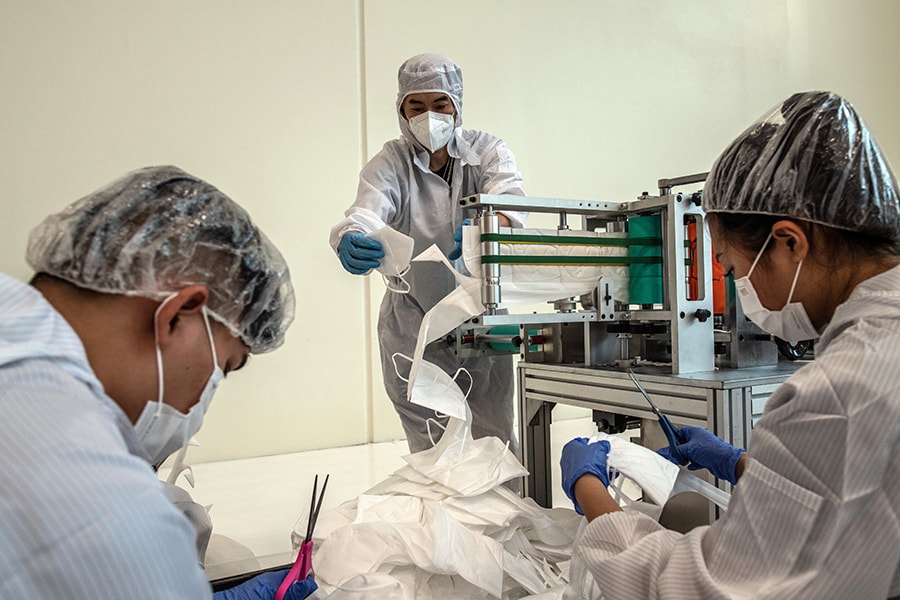
China dominates medical supplies, in this outbreak and the next
Government support and protectionism have helped China build a low-cost industry for masks, testing kits and other health gear. Other countries will find it hard to compete for years to come
 A test run of new machinery to manufacture medical masks at QYK Brands in Anaheim, Calif., on June 25, 2020. When it shifted to making medical masks in response to the coronavirus pandemic this year, QYK Brands had to import the fabric-cutting machines from China. (Bryan Denton/The New York Times)
A test run of new machinery to manufacture medical masks at QYK Brands in Anaheim, Calif., on June 25, 2020. When it shifted to making medical masks in response to the coronavirus pandemic this year, QYK Brands had to import the fabric-cutting machines from China. (Bryan Denton/The New York Times)
BEIJING — Alarmed at China’s stranglehold over supplies of masks, gowns, test kits and other front-line weapons for battling the coronavirus, countries around the world have set up their own factories to cope with this pandemic and outbreaks of the future.
When the outbreak subsides, those factories may struggle to survive. China has laid the groundwork to dominate the market for protective and medical supplies for years to come.
Factory owners get cheap land, courtesy of the Chinese government. Loans and subsidies are plentiful. Chinese hospitals are often told to buy locally, giving China’s suppliers a vast and captive market.
Once vaccines emerge, demand will plummet. Factories will close. But Chinese companies are likely to have the lowest costs by far and be best positioned for the next global outbreak.
“The Chinese have been successful weaving global personal protection equipment dominance with supply-chain command and control,” said Omar Allam, a former Canadian trade official trying to establish production of in-demand N95 medical respirators in his country.
©2019 New York Times News Service




